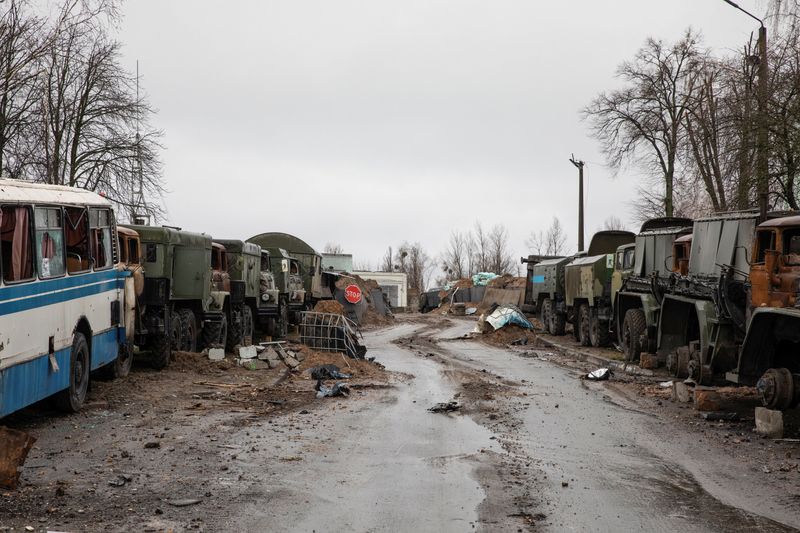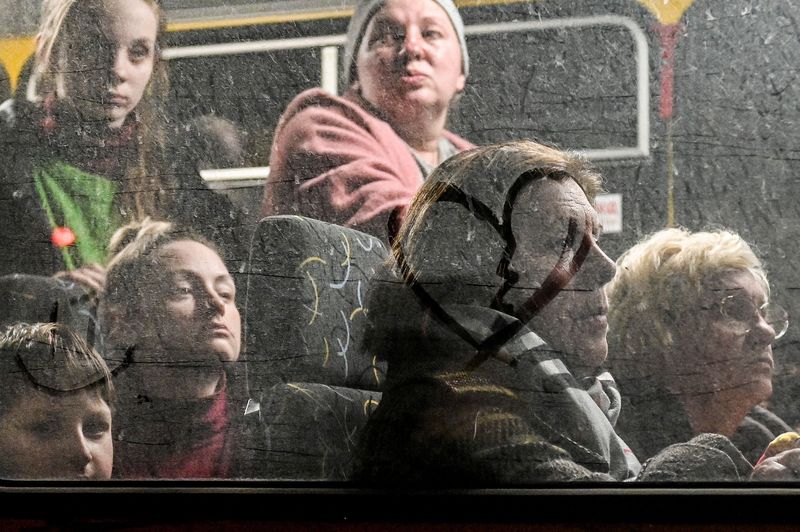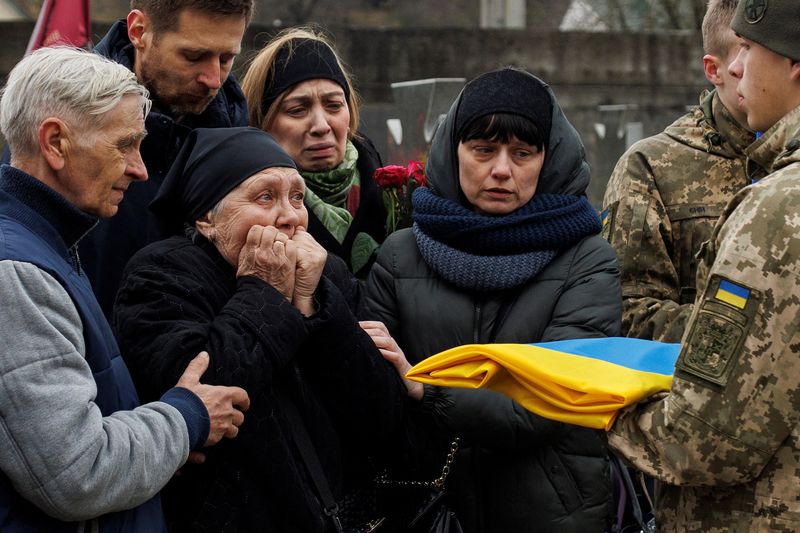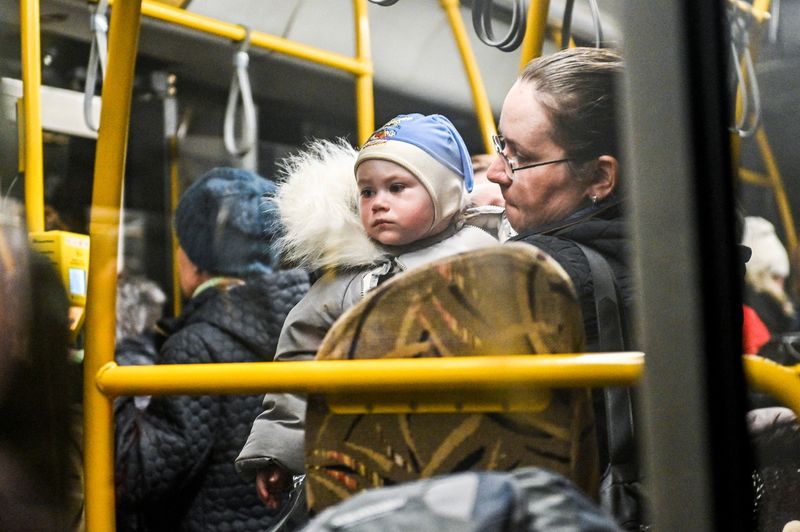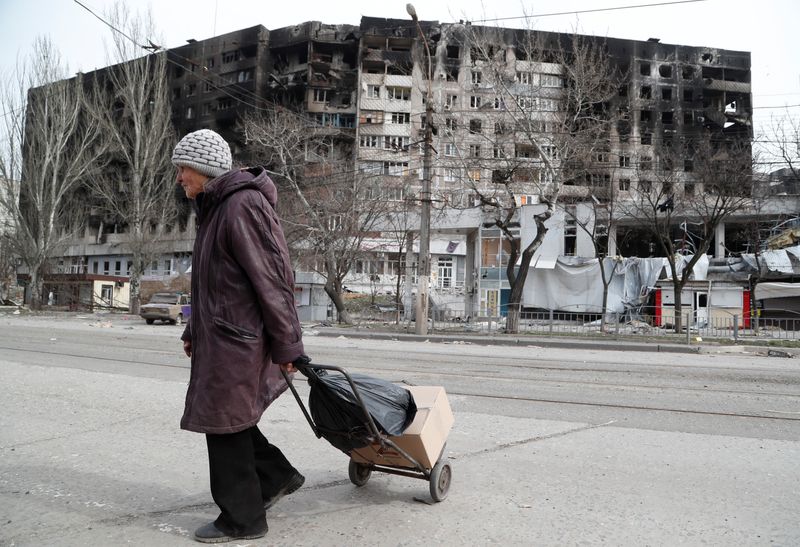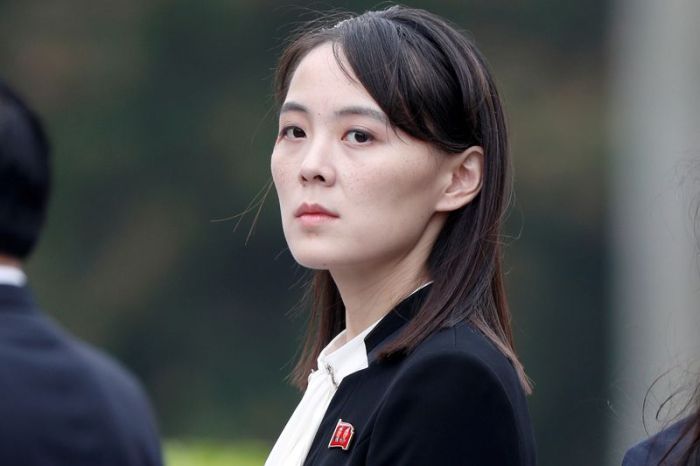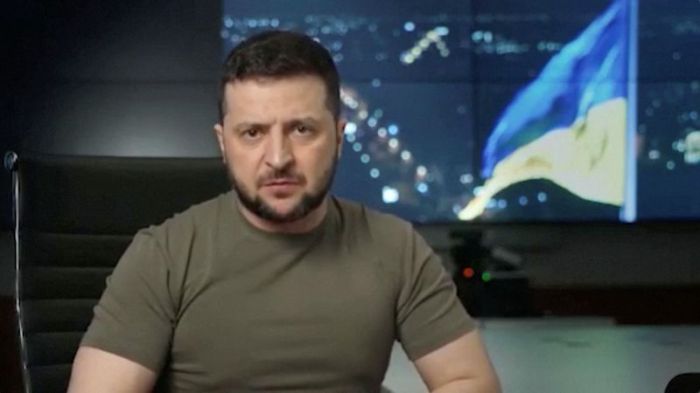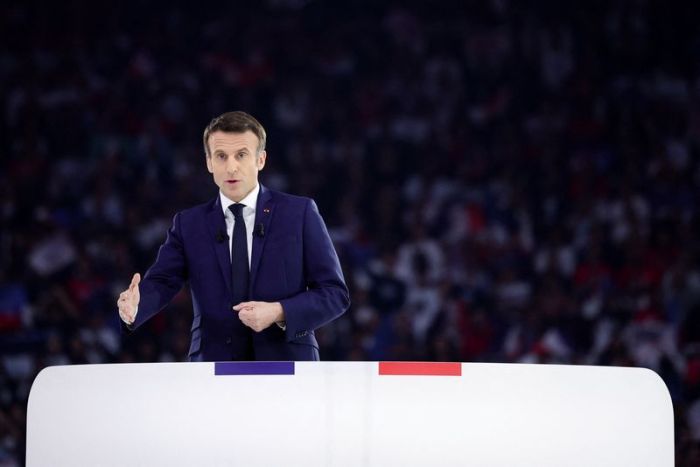ZAPORIZHZHIA, Ukraine (Reuters) – Ukraine said on Saturday its forces had seized back all areas around Kyiv, claiming complete control of the capital region for the first time since Russia launched the invasion.
As Russian troops regrouped for battles in east Ukraine, towns surrounding Kyiv bore scars of five weeks of fighting. Dead civilians laid scattered over streets, and President Volodymyr Zelenskiy accused Russian forces of leaving behind mines.
Ukraine’s troops have retaken more than 30 towns and villages around Kyiv since Russia pulled back from the area this week, Ukrainian officials said.
“The whole Kyiv region is liberated from the invader,” Ukraine’s Deputy Defence Minister, Hanna Malyar, wrote on Facebook. There was no Russian comment on the claim, which Reuters could not immediately verify.
In the recaptured town of Bucha, reached by Reuters, the sprawled remains of more than a dozen bodies lined one road. A mass grave in the grounds of a church was still open, with hands and feet poking through the red clay heaped on top.
Bucha’s mayor, Anatoliy Fedoruk, said more than 300 residents had been killed. Many tearfully recalled brushes with death.
“We don’t want them to come back,” said Mariya Zhelezova, 74, who spoke of coming under fire by Russian soldiers. “I had a dream today – that they left, and didn’t come back.”
British Foreign Secretary Liz Truss said she was appalled by atrocities in Bucha and voiced support for the International Criminal Court’s inquiry into potential war crimes in Ukraine.
Russia denies targeting civilians and rejects war crimes allegations.
PUTIN-ZELENSKIY TALKS?
Since sending troops on Feb. 24 in what it calls a “special operation” to demilitarise its neighbour, Russia has failed to capture a single major city and has instead laid siege to urban areas, uprooting a quarter of Ukraine’s population.
Ukraine’s armed forces reported diminished Russian air and missile strikes on Saturday but said Russian troops retreating from near Kyiv were deploying mines.
Zelenskiy warned in a video address: “They are mining all this territory. Houses are mined, equipment is mined, even the bodies of dead people.” He did not cite evidence.
Ukraine’s emergencies service said over 1,500 explosives had been found in one day during a search of the village of Dmytrivka, west of Kyiv.
Russia’s defence ministry did not reply to a request for comment on the mining allegations. Reuters could not independently verify them.
Russia has depicted its drawdown of forces near Kyiv as a goodwill gesture in peace talks. Ukraine and its allies say Russia was forced to shift its focus to east Ukraine after suffering heavy losses near Kyiv.
Both sides described talks held this week in Istanbul and by video link as “difficult”. Kremlin spokesman Dmitry Peskov said on Saturday the “main thing is that the talks continue, either in Istanbul or somewhere else”.
A new round of talks has not yet been announced. But Ukrainian negotiator David Arakhamia said on Saturday that enough progress had been made to allow direct talks between Russian President Vladimir Putin and Zelenskiy.
“The Russian side confirmed our thesis that the draft documents have been sufficiently developed to allow direct consultations between the two countries’ leaders,” Arakhamia said. Russia has not commented on the possibility.
FLEEING MARIUPOL
Among those killed near Kyiv was Maksim Levin, a Ukrainian photographer and videographer who was working for a local news website and was a long-time contributor to Reuters.
His body was found in a village north of Kyiv on April 1, the news website LB.ua where he worked said on Saturday.
In the east, a Red Cross convoy was again seeking to evacuate civilians from the besieged port of Mariupol after abandoning an attempt on Friday over security concerns. It was not expected to reach the city until at least Sunday.
Mariupol is Russia’s main target in Ukraine’s southeastern region of Donbas, and tens of thousands of civilians there are trapped with scant access to food and water.
Some civilians who have escaped Mariupol said Russian soldiers seeking Ukrainian fighters repeatedly stopped them as they fled.
“They stripped the men naked, looked for tattoos,” said Dmytro Kartavov, a 32-year-old builder.
International Committee of the Red Cross (ICRC) spokesperson Ewan Watson said its convoy had departed the city of Zaporizhzhia, some 200 kilometres (124 miles) from Mariupol, and would spend the night en route. Russia blamed the ICRC for the delays.
MISSILE STRIKES
Pope Francis said a “potentate” was fomenting conflicts for nationalist interests, the closest he has come yet to criticising Putin, although he did not name the Russian president.
“Once again, some potentate, sadly caught up in anachronistic claims of nationalist interests, is provoking and fomenting conflicts, while ordinary people sense the need to build a future that will either be shared or not be at all,” he said.
Ukrainian officials reported missile strikes in various parts of the country.
In the south-central Dnipro region, a Russian rocket hit a rail line, badly damaging tracks and suspending train traffic, Ukrainian officials said. Earlier, Russian missiles hit the central Ukrainian cities of Poltava and Kremenchuk, said Dmitry Lunin, head of the Poltava region.
Russia’s defence ministry said its missiles had disabled military airfields in Poltava and Dnipro. It later said its forces had hit 28 Ukrainian military facilities across the country, including two weapons depots.
The Ukrainian military also reported Russian air strikes on the cities of Severodonetsk and Rubizhne in the Luhansk region.
(Additional reporting by Natalia Zinets in Mukachevo, Ukraine, Alessandra Prentice and Reuters bureaus; Writing by Rami Ayyub and Estelle Shirbon; Editing by Kevin Liffey, Frances Kerry, David Gregorio and Daniel Wallis)

